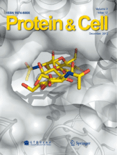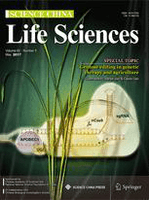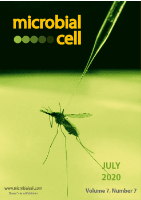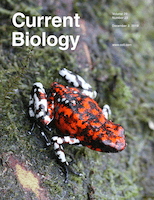
All Life
Scope & Guideline
Advancing Knowledge Across Disciplines
Introduction
Aims and Scopes
- Molecular and Cellular Biology:
Research targeting the molecular mechanisms underlying cellular functions, including studies on gene expression, protein interactions, and cellular signaling pathways. - Environmental and Ecological Studies:
Investigations into the interactions between organisms and their environments, focusing on biodiversity, ecosystem dynamics, and the impact of environmental changes on biological systems. - Health and Disease Mechanisms:
Exploration of the biological basis of diseases, including genetic, metabolic, and immunological aspects, with a focus on potential therapeutic interventions. - Agricultural and Plant Sciences:
Studies on plant biology, agricultural practices, and the use of biotechnological approaches to enhance crop yield and sustainability. - Microbiology and Pathogen Research:
Research into microbial life, including pathogenic organisms, their mechanisms of action, and implications for human health and disease management. - Biotechnology and Bioinformatics:
Application of biotechnological tools and computational methods to analyze biological data, facilitating advancements in genomics, proteomics, and systems biology.
Trending and Emerging
- Microbiome Research:
There is an increasing interest in understanding the human and environmental microbiomes, with studies exploring their roles in health, disease, and ecosystem functioning. - Omics Technologies:
The application of genomics, proteomics, and metabolomics is on the rise, enabling comprehensive analyses of biological systems and facilitating personalized medicine approaches. - Sustainable Agriculture and Food Security:
Research addressing sustainable farming practices, crop resilience, and food security is gaining attention, driven by global challenges such as climate change and population growth. - Cancer Biology and Therapeutics:
An upsurge in studies focusing on the molecular mechanisms of cancer and the development of novel therapeutic strategies, including immunotherapy and targeted treatments, is evident. - Environmental Health and Toxicology:
Increased awareness of the impacts of environmental factors on human health is leading to more studies on toxicological assessments and the effects of pollutants. - Bioinformatics and Data Science in Biology:
The integration of bioinformatics and data science methodologies in biological research is emerging, facilitating large-scale data analysis and insights into complex biological questions.
Declining or Waning
- Traditional Herbal Medicine:
The focus on traditional herbal remedies has waned, possibly due to a shift towards more evidence-based approaches in medical research and a growing emphasis on pharmacological validations. - Basic Taxonomic Studies:
The frequency of studies purely dedicated to taxonomic classification of organisms has decreased, likely because newer methodologies in molecular phylogenetics have taken precedence. - In vitro Studies without Clinical Relevance:
Research that does not transition from laboratory settings to clinical applications or practical implications appears to be less favored, as journals increasingly prioritize studies with clear translational potential. - Single-Organism Studies:
Research focusing solely on single organisms is declining, as interdisciplinary and systems biology approaches that consider interactions within ecosystems gain traction.
Similar Journals

BIOLOGICAL RESEARCH
Transforming research into accessible knowledge.BIOLOGICAL RESEARCH is a prestigious, peer-reviewed journal published by the Société de Biologie de Chile, dedicated to advancing the fields of Agricultural and Biological Sciences, Biochemistry, Genetics, and Molecular Biology, and Medicine. With an impressive ranking in the top quartile (Q1) in these categories as of 2023, this journal maintains high academic standards and visibility, making it a vital resource for researchers and professionals alike. Operating under an Open Access model since 2013, it ensures that research findings are freely accessible to a global audience, promoting the dissemination of knowledge and collaboration across disciplines. With a publication history dating back to 1992 and continued updates until 2024, BIOLOGICAL RESEARCH serves as a crucial platform for innovative research that impacts both scientific and healthcare communities. The journal’s commitment to quality and relevance is evidenced by its competitive performance in Scopus rankings, further solidifying its role as a leading journal within the biological sciences.

TURKISH JOURNAL OF BIOLOGY
Empowering Researchers with Open Access to Cutting-edge ScienceTURKISH JOURNAL OF BIOLOGY, published by the Tubitak Scientific & Technological Research Council Turkey, is an esteemed peer-reviewed periodical that serves as a pivotal platform for advancing the fields of Agricultural and Biological Sciences. With a strong focus on innovative research across various biological domains, including Cell Biology, Genetics, and Microbiology, this journal not only fulfills the academic community's quest for high-quality research but also fosters collaboration and knowledge sharing among researchers. The journal's notable impact factors reflect its commitment to excellence, with its latest rankings placing it in Q2 in Agricultural and Biological Sciences (miscellaneous) and in Q4 for several other categories. By offering open access to its content, TURKISH JOURNAL OF BIOLOGY ensures that valuable biological insights are readily available to the global academic community. Its convergence from 2006 to 2024 signifies its longstanding influence in the biosciences, making it an essential resource for researchers, professionals, and students alike aiming to stay at the forefront of biological research and innovation.

Protein & Cell
Advancing Knowledge in Biochemistry and Cell BiologyProtein & Cell, published by Oxford University Press, is a distinguished international journal focusing on cutting-edge research in the fields of biochemistry, biotechnology, cell biology, and drug discovery. This open access journal, active since 2014, is dedicated to disseminating innovative findings that advance our understanding of protein functions and cellular processes, making it an essential resource for researchers, professionals, and students alike. With an impressive 2023 impact factor reflected in its Q1 ranking across multiple categories such as Biochemistry, Drug Discovery, and Cell Biology, 'Protein & Cell' stands at the forefront of scientific research, driving collaboration and discussion in the scientific community. Researchers can access the journal freely online, fostering a global exchange of knowledge and contributing to significant advancements in medicine and biotechnology. Located in the United Kingdom, the journal strives to be a pivotal platform for impactful research that influences future studies and applications.

Science China-Life Sciences
Unlocking the secrets of life sciences for a sustainable future.Science China-Life Sciences, published by SCIENCE PRESS, is a premier academic journal that stands at the forefront of innovative research and discoveries in the fields of life sciences, spanning crucial areas such as agricultural and biological sciences, biochemistry, genetics, molecular biology, and environmental science. With an impressive Q1 ranking in its respective categories—ranked #5 in Agricultural and Biological Sciences, #7 in Environmental Science, and #17 in Biochemistry, Genetics and Molecular Biology—this journal is recognized for its rigorous peer-review process and significant impact within the scientific community, as reflected in its high percentiles (97th and 92nd). Maintained as an Open Access publication, it ensures broad dissemination and accessibility of research findings, fostering collaboration and knowledge sharing among researchers, professionals, and students alike. Given its position in the research landscape and its commitment to high-quality scholarship, Science China-Life Sciences plays a vital role in advancing life sciences research, supporting scientists in addressing global challenges through innovative biological solutions.

Microbial Cell
Advancing the frontiers of microbial science.Microbial Cell is a distinguished open-access journal published by SHARED SCIENCE PUBLISHERS OG, focusing on the dynamic fields of microbiology, biochemistry, and molecular biology. Since its establishment in 2014, Microbial Cell has been at the forefront of disseminating cutting-edge research essential for advancing our understanding of microbial functions and interactions. With a commendable impact factor and ranking in the top quartiles (Q1 and Q2) across several categories, including Applied Microbiology and Biotechnology and Parasitology, this journal serves as an invaluable resource for researchers, professionals, and students alike. It features a comprehensive scope that encompasses the latest findings in genetics, cell biology, and virology, facilitating the academic community's access to high-quality peer-reviewed work. Microbial Cell not only contributes to advancing microbial sciences but also fosters an inclusive platform for knowledge sharing and collaboration in the scientific community.

CURRENT GENOMICS
Pioneering insights in clinical and molecular genetics.CURRENT GENOMICS is a premier journal published by Bentham Science Publishers that focuses on the expansive field of genomics, including both clinical and molecular genetics. With the ISSN 1389-2029 and E-ISSN 1875-5488, this esteemed journal has been disseminating significant scientific insights since its inception in 2000 and continues to contribute to the field through 2024. Based in the United Arab Emirates, CURRENT GENOMICS boasts a Q3 ranking in both the genetics and clinical genetics categories for 2023, reflecting its growing impact in the scientific community. Although not an open-access journal, it provides valuable content that supports researchers and professionals in navigating the complexities of genetic research and its applications. By publishing original research articles, reviews, and case studies, CURRENT GENOMICS aims to foster a deeper understanding of genomic science and its implications for medicine, thus playing a critical role in the advancement of genetics and biomedical research.

Life Science Alliance
Unlocking Potential in Life Science Research.Life Science Alliance, published by LIFE SCIENCE ALLIANCE LLC, is a premier open access journal that has been making significant contributions to the fields of Biochemistry, Genetics and Molecular Biology, Ecology, Health, Toxicology and Mutagenesis, and Plant Science since its inception in 2018. With an impressive ranking in Scopus, including Q1 quartile positions and high percentiles in relevant categories, this journal is a vital resource for researchers, professionals, and students alike who seek to advance knowledge and innovation in life sciences. The journal operates on an open access model, ensuring that research findings are freely available to the global scientific community, thereby enhancing the visibility and impact of published work. With a commitment to fostering collaboration and disseminating high-quality research, Life Science Alliance serves as an essential platform for the promotion and exchange of scientific knowledge, aiming to bridge gaps and stimulate discussions across multiple disciplines.

FOLIA BIOLOGICA-KRAKOW
Empowering researchers with pivotal insights in biological sciences.FOLIA BIOLOGICA-KRAKOW, published by the renowned Polish Academy of Sciences, Institute of Systematics and Evolution of Animals, serves as a pivotal platform for advancing research in the fields of Biochemistry, Genetics, and Molecular Biology. Since its inception in 1953, this journal has consistently contributed to the academic dialogue, focusing on a diverse range of topics, including evolutionary biology, molecular genetics, and ecological biochemistry. Although currently classified in Q4 quartiles according to the 2023 categorizations in both Biochemistry, Genetics and Molecular Biology (miscellaneous) and Medicine (miscellaneous), its dedicated efforts to disseminate critical findings and foster scholarly exchange ensure its relevance and growth in the scientific community. FOLIA BIOLOGICA-KRAKOW is not Open Access, but researchers can access its publications through institutional subscriptions or library services, making it a valuable resource for scientists seeking to enrich their understanding of biological processes. With its commitment to excellence and innovation in biological research, this journal remains an essential reference for researchers, professionals, and students alike, contributing significantly to the evolution of contemporary biological sciences.

PERIODICUM BIOLOGORUM
Connecting Ideas Across Biological FrontiersPERIODICUM BIOLOGORUM is a well-established interdisciplinary journal published in Croatia that focuses on advancing the fields of agricultural and biological sciences, biochemistry, genetics, and molecular biology, along with general medicine. With its roots dating back to 1980, the journal has been an essential platform for the dissemination of original research, reviews, and theoretical studies, fostering collaboration and dialogue among researchers within these diverse areas. While currently holding a Q4 quartile ranking in several categories, including agricultural and biological sciences, biochemistry, and general medicine, it provides a significant opportunity for authors seeking to contribute to the body of knowledge in these sectors. Although Open Access options are not available, the journal's rich history and commitment to quality scholarship make it a valuable resource for professionals, researchers, and students alike, aiming to stay informed about current trends and advancements in biological research and its applications.

CURRENT BIOLOGY
Unveiling the Future of Biology, One Study at a TimeCURRENT BIOLOGY is a premier academic journal published by CELL PRESS, dedicated to a broad spectrum of fields within biological sciences. With an ISSN of 0960-9822 and E-ISSN 1879-0445, the journal has established itself as a vital resource for groundbreaking research and advancements since its inception in 1991. CURRENT BIOLOGY boasts high prominence in its categories, securing a Q1 quartile ranking in Agricultural and Biological Sciences, Biochemistry, Genetics and Molecular Biology, and Neuroscience, indicating its significant impact and relevance in these fields. Notably, it ranks #9 out of 221 journals in Agricultural and Biological Sciences, placing it in the 96th percentile, while also maintaining a strong presence in the Biochemistry category with a rank of #26. Researchers and professionals can rely on CURRENT BIOLOGY for comprehensive reviews, innovative methodologies, and crucial scientific developments that bridge theoretical knowledge with practical applications. The journal continues to play an essential role in enhancing the global dialogue in biological research, making it indispensable for students, academics, and industry experts aiming to stay at the forefront of the rapidly evolving landscape of life sciences.